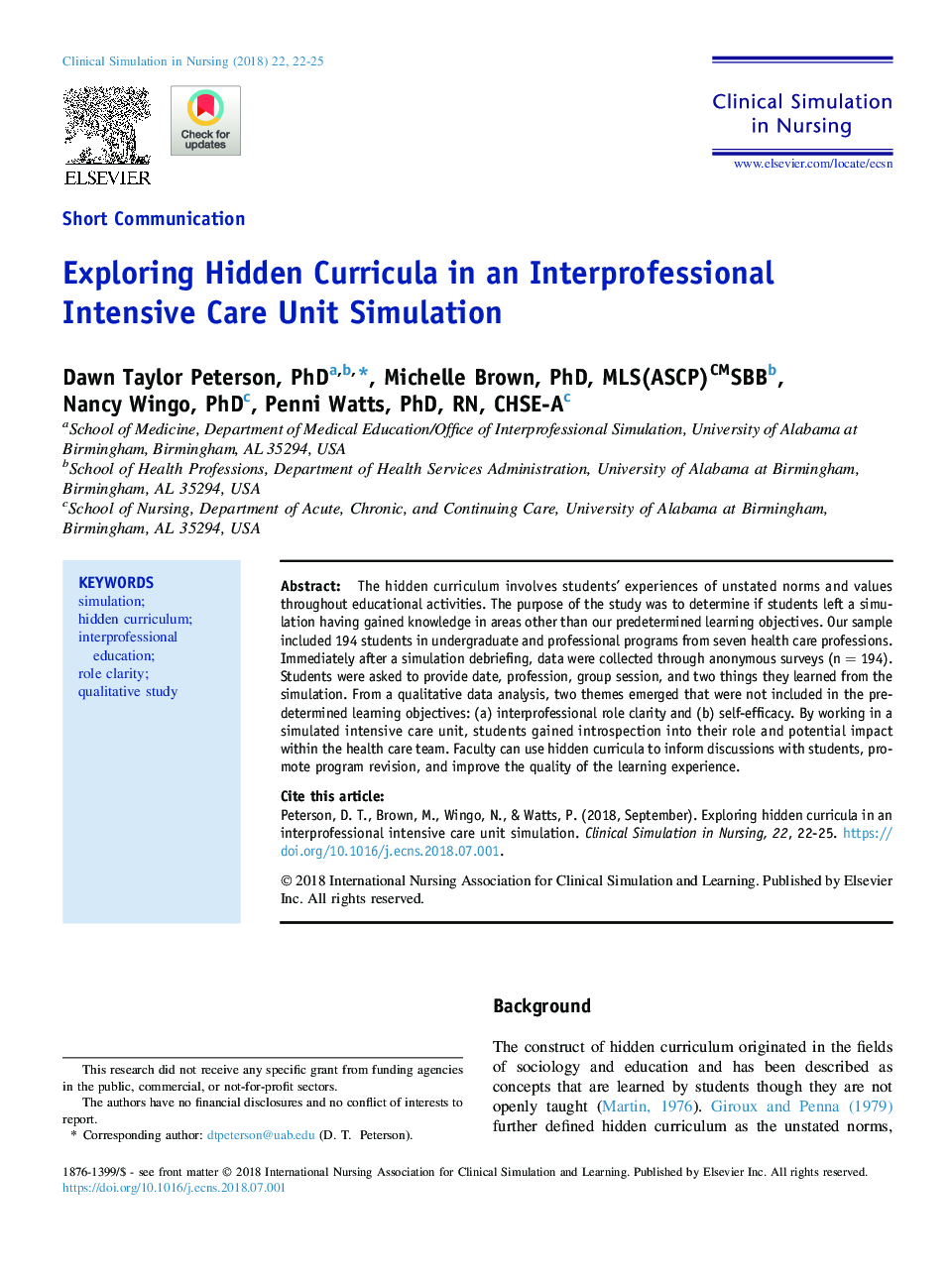| Article ID | Journal | Published Year | Pages | File Type |
|---|---|---|---|---|
| 8568244 | Clinical Simulation in Nursing | 2018 | 4 Pages |
Abstract
The hidden curriculum involves students' experiences of unstated norms and values throughout educational activities. The purpose of the study was to determine if students left a simulation having gained knowledge in areas other than our predetermined learning objectives. Our sample included 194 students in undergraduate and professional programs from seven health care professions. Immediately after a simulation debriefing, data were collected through anonymous surveys (n = 194). Students were asked to provide date, profession, group session, and two things they learned from the simulation. From a qualitative data analysis, two themes emerged that were not included in the predetermined learning objectives: (a) interprofessional role clarity and (b) self-efficacy. By working in a simulated intensive care unit, students gained introspection into their role and potential impact within the health care team. Faculty can use hidden curricula to inform discussions with students, promote program revision, and improve the quality of the learning experience.
Related Topics
Health Sciences
Nursing and Health Professions
Nursing
Authors
Dawn Taylor PhD, Michelle PhD, MLS(ASCP)CMSBB, Nancy PhD, Penni PhD, RN, CHSE-A,
